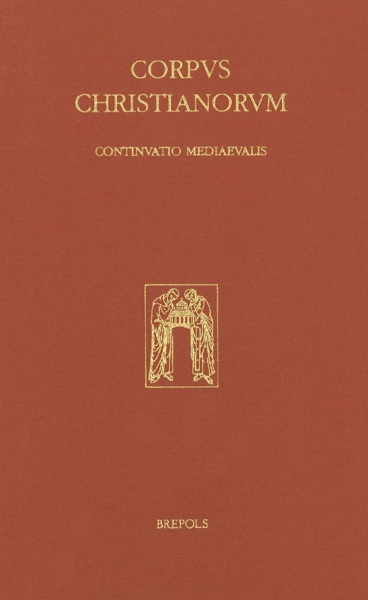
- Pages: 229 p.
- Size:155 x 245 mm
- Language(s):Latin, Italian, English
- Publication Year:2006
- € 120,00 EXCL. VAT RETAIL PRICE
- ISBN: 978-2-503-04421-7
- Hardback
- Available
The De sex rerum principiis is a twelfth-century (c. 1155) pseudonymous philosophical cosmology attributed to Hermes Mercurius Triplex, which has been read and cited frequently in the Middle Ages. Solidly placed within the Hermetic tradition by authors writing as early as the late twelfth-century, the text is unique in the medieval Hermetic tradition as quoting at length well-known authors of its own time such as William of Conches, Bernardus Silvestris, Adelard of Bath, and Hugh of St. Victor. Also unique is the amount of material quoted verbatim from Latin translations of Arabic astrological texts composed by al-Qabisi, Saul ben Bishr, and Masha' allah, and from the best known astrologer of late antiquity, Firmicus Maternus. While these sources provide the author with a wealth of cosmological data, Ps. Hermes himself provides the philosophical framework of cosmic principles which govern discrete regions of the cosmos. Consequently, apart from being an important witness to the new integration of Arabic astrological texts into the Latin intellectual climate of the twelfth century, the text is especially interesting as an example of philosophical cosmology seeking to account for all the dynamics of the universe by means of a particular set of divine principles. Like William of Conches, whom he quotes at length, Ps. Hermes sees the motions of the cosmos as fundamentally immanent motions of divine power, although unlike the Chartrian author, who grounds the dynamics of the material cosmos in the transcendental motions of the Trinity, especially the Holy Spirit, the author of the De sex rerum principiis makes no mention of Christian themes, preferring, perhaps under the cover of his ancient pseudonym, to characterize his principles by a hierarchy of traditional Western philosophical terms: causa, ratio, natura, mundus, machina mundi, and tempus/temporalia. Furthermore, as a result of its unique characterization of the action of divine immanence as the qualitative motion itself of the cosmos, the De sex rerum principiis must be seen as one of the most important witnesses to the continuing allure of Stoic physics in the Middle Ages. Finally, the De sex rerum principiis is an important witness to twelfth-century conventions of reading and composition: while unattributed verbatim quotations of sources are placed strategically throughout the text, upon closer inspection one finds that the pseudonymous author has made subtle changes to virtually all of them in a way that provides the reader with a subtextual narrative that reveals important clues to his underlying philosophical agenda, as well as to the literary unity of the work itself.





